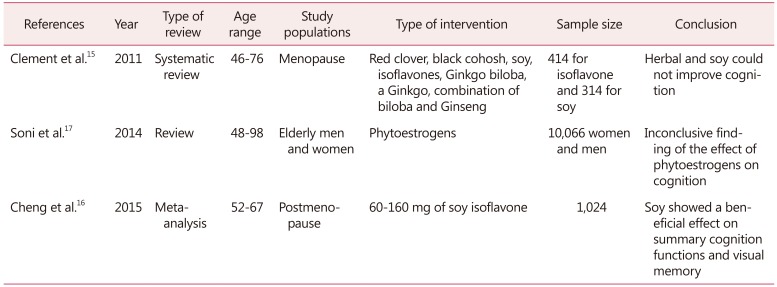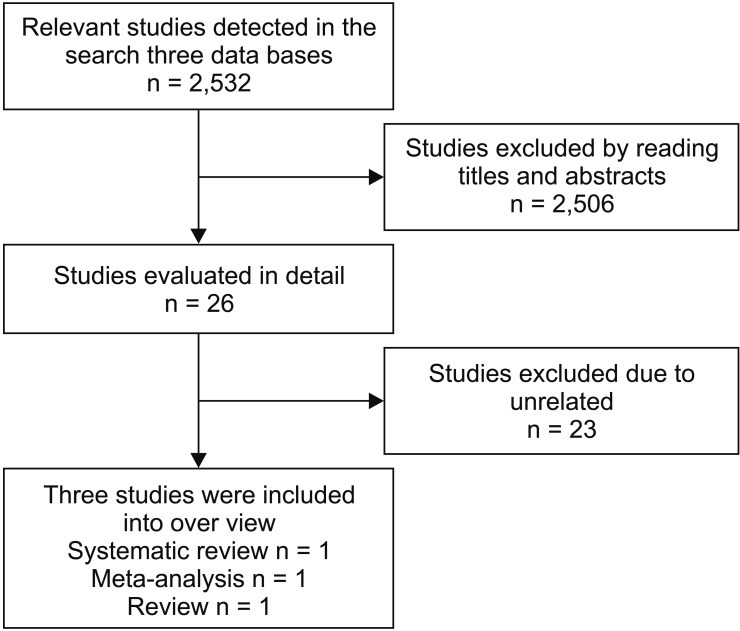Introduction
Materials and Methods
Table 2
Assessment of methodological quality of systematic using the Assessment of Multiple Systematic Reviews items

*1: Was an ‘a priori’ design provided?
†2: Was there duplicate study selection and data extraction?
‡3: Was a comprehensive literature search performed?
§4: Was the status of publication (e.g., grey literature) used as an inclusion criterion?
‖5: Was a list of studies (included and excluded) provided?
¶6: Were the characteristics of the included studies provided?
**7: Was the scientific quality of the included studies assessed and documented?
††8: Was the scientific quality of the included studies used appropriately in formulating conclusions?
‡‡9: Were the methods used to combine the findings of the studies appropriate?
§§10: Was the likelihood of publication bias assessed?
‖‖11: Was the conflict of interest stated?
AMSTAR: Assessment of Multiple Systematic Reviews
Table 3
Assessment of methodological quality of systematic according to Center for Evidence-Based Management

*1: Did the study address a clearly focused question?
†2: Was a comprehensive literature search conducted using relevant research databases (e.g., ABI/INFORM, Business Source Premier, PsycINFO, Web of Science, etc.)
‡3: Is the search systematic and reproducible (e.g., were searched information sources listed, were search terms provided)?
§4: Has publication bias been prevented as far as possible (e.g., were attempts made at collecting unpublished data)?
‖5: Are the inclusion and exclusion criteria clearly defined (e.g., population, outcomes of interest, study design)?
¶6: Was the methodological quality of each study assessed using predetermined quality criteria?
**7: Are the key features (population, sample size, study design, outcome measures, effect sizes, limitations) of the included studies described?
††8: Has the meta-analysis been conducted correctly?
‡‡9: Were the results similar from study to study?
§§10: Is the effect size practical relevant?
‖‖11: How precise is the estimate of the effect? Were confidence intervals given?
¶¶12: Can the results be applied to your organization?
AMSTAR: Assessment of Multiple Systematic Reviews




 PDF
PDF ePub
ePub Citation
Citation Print
Print




 XML Download
XML Download